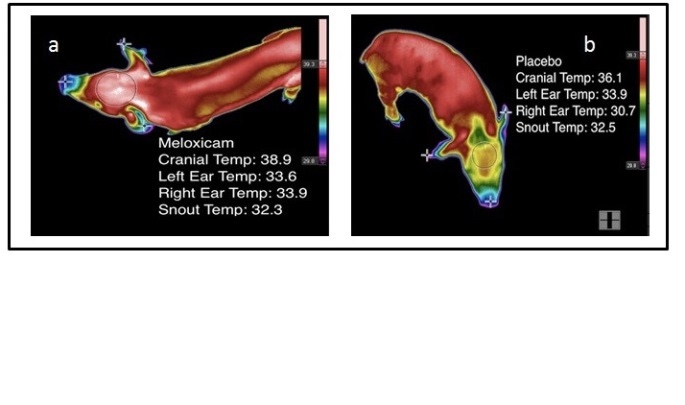Researchers Deliver Pain Medicine to Piglets Through Sow’s Milk
December 10, 2014

Veterinary researchers at Iowa State University recently announced the results of a proof-of-concept study investigating a method for delivering pain medication to piglets through the milk of the mother sow as the piglets nurse.
The research was conducted to explore potential methods pork producers could use during castration and tail docking procedures.
Hans Coetzee, a professor of veterinary diagnostic and production animal medicine, worked with colleagues Locke Karriker, an associate professor of veterinary diagnostic and production animal medicine, and postdoctoral research associate Jessica Bates to study the possibility of introducing pain medication into the feed of a sow, which would then pass it on to her piglets through her milk.
The results of the year-long study, published recently in the academic journal PLOS ONE, indicate that piglets that receive the pain medication through the milk of a medicated sow experience less stress following castration and tail docking than piglets nursed on sows that didn’t receive the medication.
“We wanted to find out if we can deliver medications to the piglets passively without having to handle and inject each one individually,” Coetzee said. “Our results seem to demonstrate that this method has the potential to dramatically change how piglets are treated.”
The practices of removing the tails of piglets and castrating males are common in U.S. pork production, he said. Castrating males before they reach sexual maturity stops pork from developing an unpleasant taste referred to as “boar taint” in the industry. It also lowers the level of aggression that male pigs may demonstrate.
Docking reduces the possibility of pigs biting the tails of their pen-mates, causing pain and potentially serious injury, Coetzee said.
The European Union requires pork producers to administer pain medication to piglets before carrying out these procedures, but the United States hasn’t enacted a similar measure. In fact, the Food and Drug Administration hasn’t approved the use of any pain medication for piglets, Coetzee said.
So how do the researchers know the piglets in the study are responding to the medication? Coetzee said the team tracked the level of the medication in blood samples taken from both the sows and piglets involved in the study. They also used a thermography camera to measure changes in skin temperature on the heads of the piglets after they underwent castration and docking.
The images showed that piglets nursing unmedicated sows typically had a pronounced drop in surface temperature around their heads, likely resulting from pain causing blood vessels in the skin to constrict and reduce blood flow. On the other hand, piglets that received the pain medication through the milk maintained a more consistent surface skin temperature, an indication that those piglets were under less stress, Coetzee said.
The researchers used meloxicam in the study, a non-steroidal anti-inflammatory medication similar to aspirin. Coetzee said the next step in the research is to determine the lowest dose of medicine that can be given to a sow that still produces the desired amount of pain mitigation in piglets.
“We have to refine the process and make it cost effective, because this method has immense potential in assisting the swine industry in addressing pain associated with routine management procedures,” he said. “It’s possible it could be used for other drugs a producer might want to use to medicate piglets.”
The research was funded by a $25,000 grant from the Iowa Livestock Health Advisory Council. Coetzee’s research is also supported by the U.S. Department of Agriculture’s National Institute of Food and Agriculture.
See more at www.news.iastate.edu/news/2014/12/09/piglet2014#sthash.3mt99akq.dpuf.
You May Also Like



